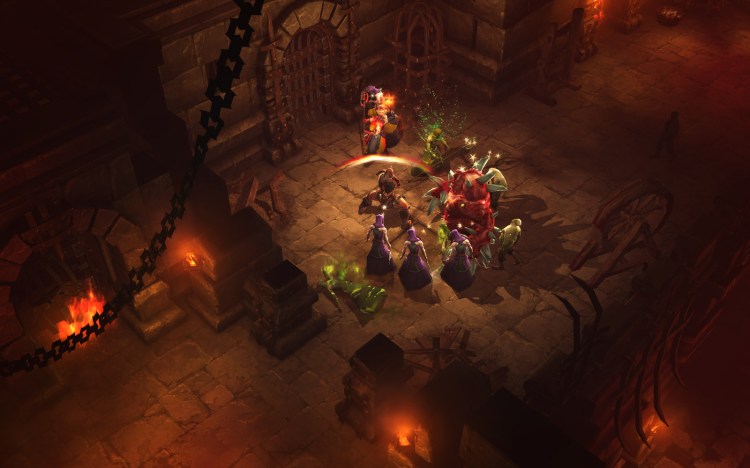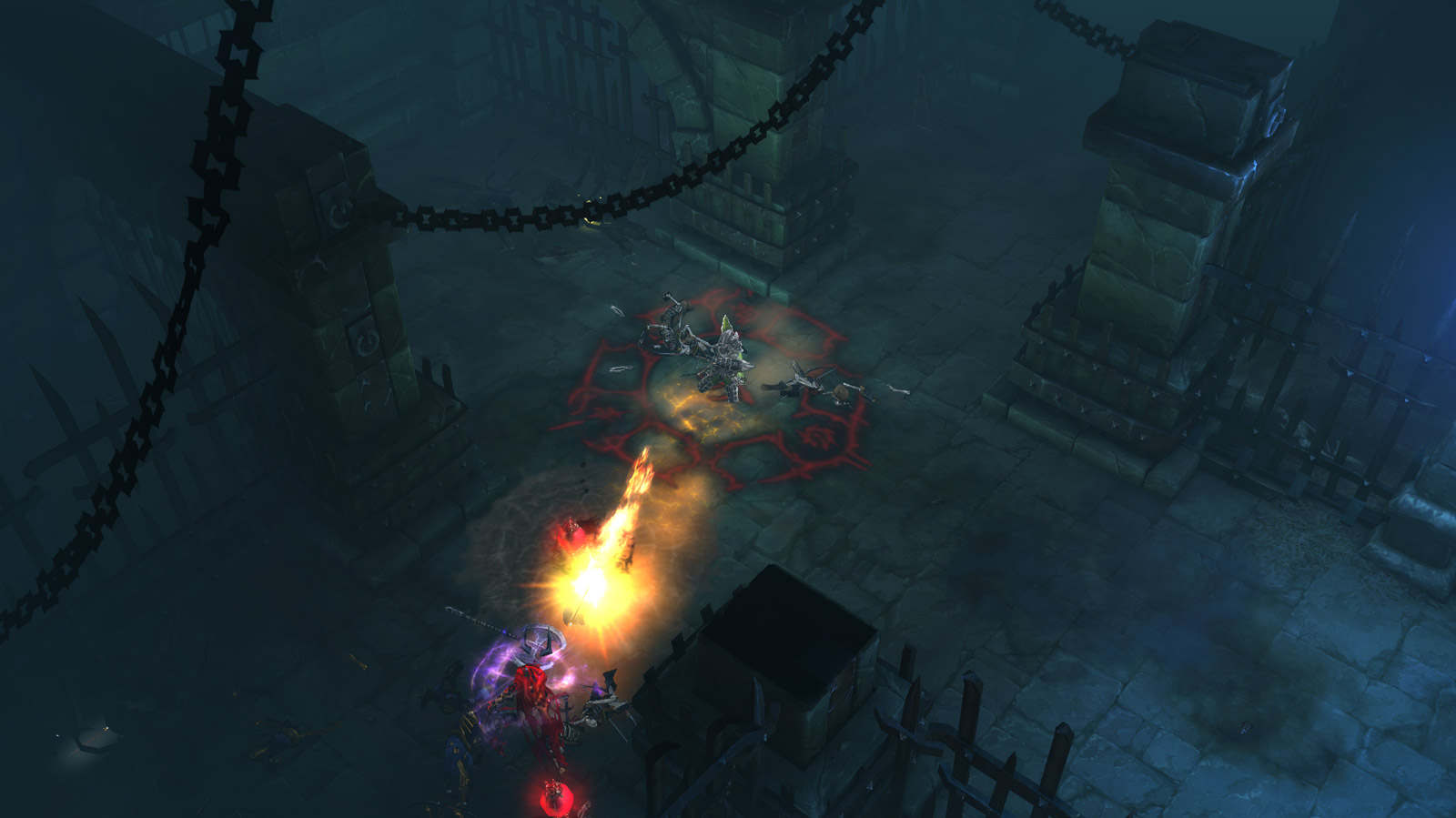If Blizzard Entertainment has learned anything from World of Warcraft, it’s that simplicity typically wins. At one point the character classes in World of Warcraft had hundreds of available “talents” — traits that powered up the character — for players to choose from. It’s since pared that down significantly to a few dozen talents, and it streamlined the process of making your character more powerful, along with finding people to play with and completing quests.
That philosophy carries over to Diablo 3. Rather than present you with complex decision trees that let you pick skills as you see fit, as in the game’s predecessor Diablo 2, it introduces new skills to you over time. As you kill enemies you earn experience points and level up, and the game usually rewards you with a new skill. You can only “equip” two skills that you can use at any time at first, and you will be able to equip more as you play the game more.
Diablo 2 also allowed much more direct customization of the character by allocating “stat points” that you earn when you level up to whatever statistics you wanted to choose from. You could choose to make a barbarian that had a ton of health or could soak up a lot of damage by pouring your stat points into vitality and dexterity. Diablo 3 does away with that system and automatically allocates those stat points, so all character classes grow at the same rate.
Also gone are the endless trips back to town to sell loot you find on the ground and stocking up on scrolls that you need to progress safely. The game gives you pieces of equipment that let you automatically sell loot that you find for gold — the game’s currency that you use to buy new loot or build new armor — and automatically warp back to town whenever you see fit. You still need to go back to town every now and then to buy new weapons or to craft weapons and armor, but those trips are fewer and far between.
Like World of Warcraft, the game guides you directly to your next objectives with the help of waypoints and markers. Those features weren’t available in the original launch in World of Warcraft, but independent “mod” developers for the game introduced them and Blizzard Entertainment decided to add the feature separately due to how popular the mods were. It’s feedback on several fronts — with players, developers and the actual team all working to make the game simpler and easier to access.
That’s a game philosophy that became more popular with the emergence of social and casual games like those developed by social gaming giant Zynga. The games make your next objectives obvious and regularly reward you for smaller objectives rather than completing supermassive quests — like slaying the lord of hell, the main quest for Diablo 2. Diablo 3 breaks each major quest up into smaller objectives that you can complete in somewhere between 5 and 10 minutes.
Zynga was able to build an entire business off those casual, lightweight games. The company recently filed for its initial public offering in order to raise up to $1 billion. Even with turbulent markets, which might delay the company’s trading debut, the massive IPO really just proves the obvious: simplicity wins.


